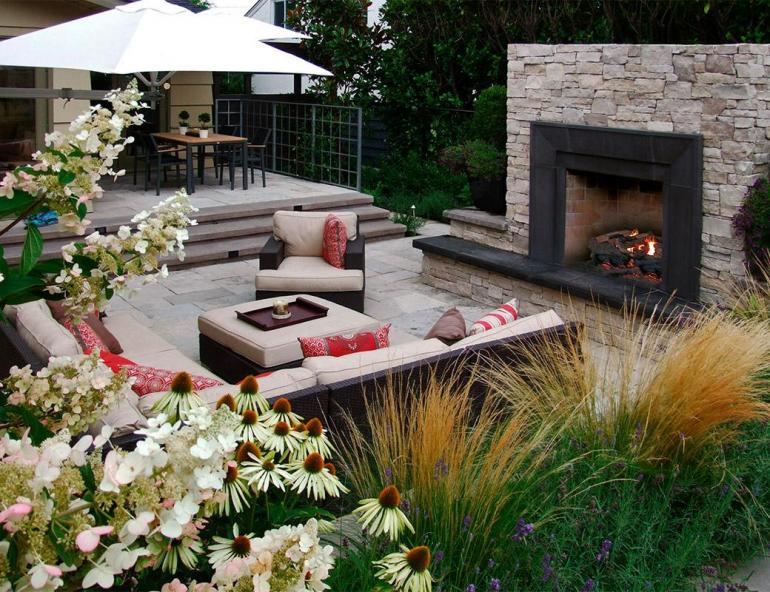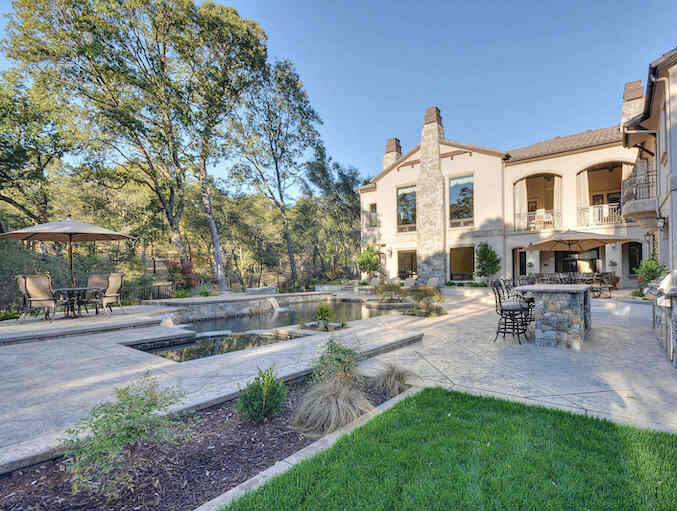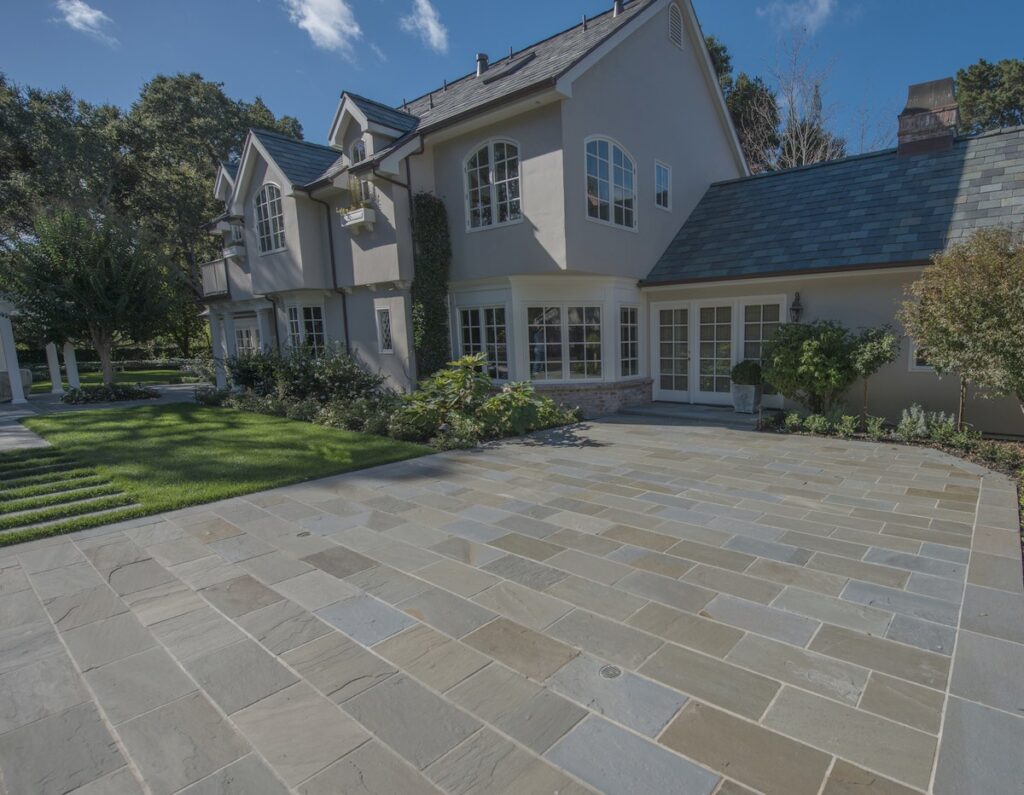On our last blog, we touched on the idea of sealing and coating your natural stone. But does your natural stone even need to be sealed? And what’s the difference between sealing and coating? Let’s explore.
Some say natural stone doesn’t need any additional treatment since it’s been sitting in the earth for millions of years and will do just fine without our help. While there is truth in that statement it is also true that natural stone will stain or etch depending on stone type. So if you want your new stone patio to keep that new stone look then some treatment may be useful.
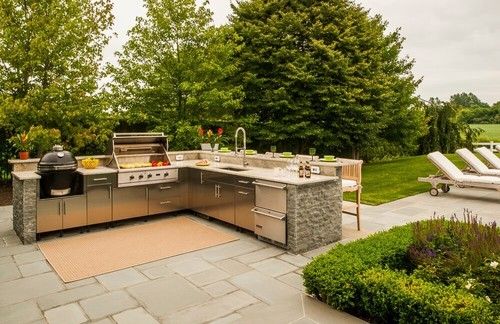
First, let’s address the when before the how. TIP #1 Our resident stone guru and gentleman scholar, Luke Morey, says if you’re installing a stone patio over a new concrete slab then you need to let that concrete cure properly before applying anything to your stone. Proper curing of concrete can take up to a month. That means if you apply a sealer too quickly—before the moisture has completely evaporated from the concrete—you run the risk of diminishing the sealer’s efficacy. Not to mention affecting the strength of that new concrete. So you lose twice. Solution: be patient.
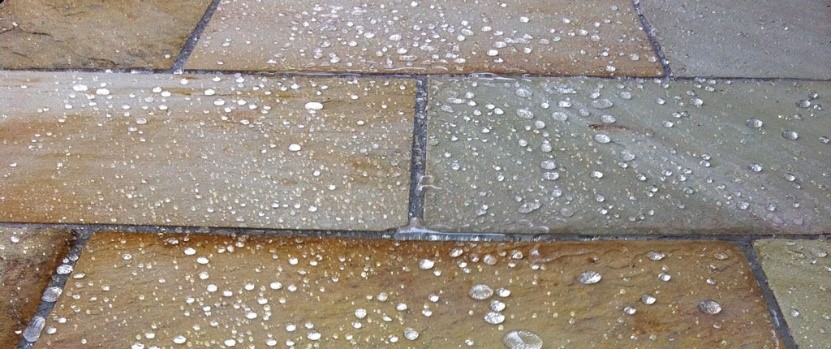
Then comes the question of how to treat your stone: sealing versus coating. If your stone is acid sensitive, like marble or limestone, then sealing will not protect it from etching. Etching is a chemical burn that sit on top of the stone. To protect against etching the best method is coating the surface with a layer of epoxy or other film to act as a barrier. The advantage here is saving yourself the effort of trying to buff out etch marks down the road. But sometimes coatings make your stone look synthetic or leave a yellow tint after a while. Others aren’t rated for outdoor use. There are some new coatings on the market that are UV activated and do a better job of allowing your stone to look natural. Just make sure to read the label carefully before pouring anything on your stone. And remember you will need to recoat to maintain that protective barrier.
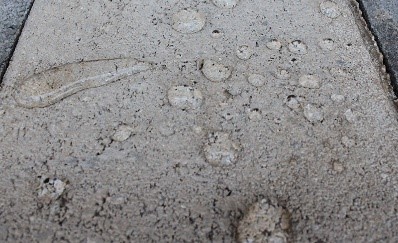
If your stone isn’t acid sensitive, like sandstone or granite, then you don’t have to worry about etching. But the stone can still stain. And the depth of staining will depend on the stone’s porosity. TIP #2 To determine your stone porosity drop beads of water on the surface and time the absorption rate. If the water is sucked down in under a minute then you’re on the porous side. More than four minutes then it’s only slightly porous. The more porous your stone the faster and deeper a stain will soak. This might be the right stone for a sealer. Sealers we carry include Laticrete, Glaze N Seal, DryTreat and Prosoco.
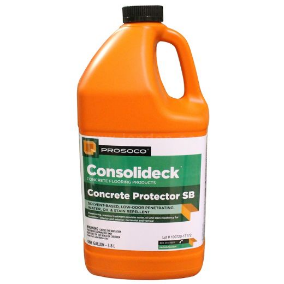
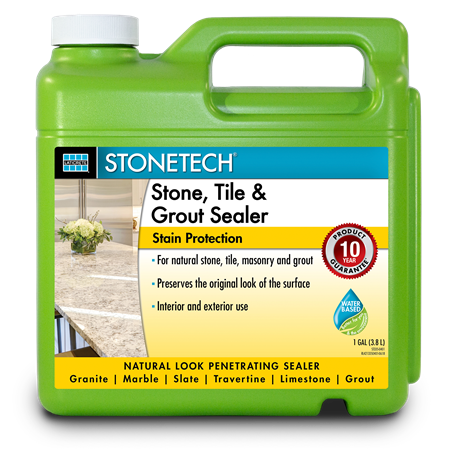
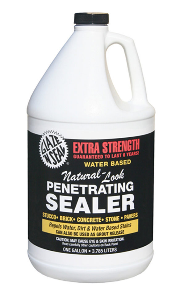
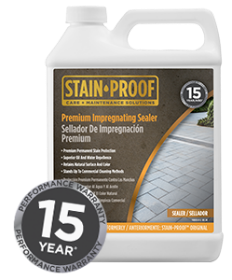
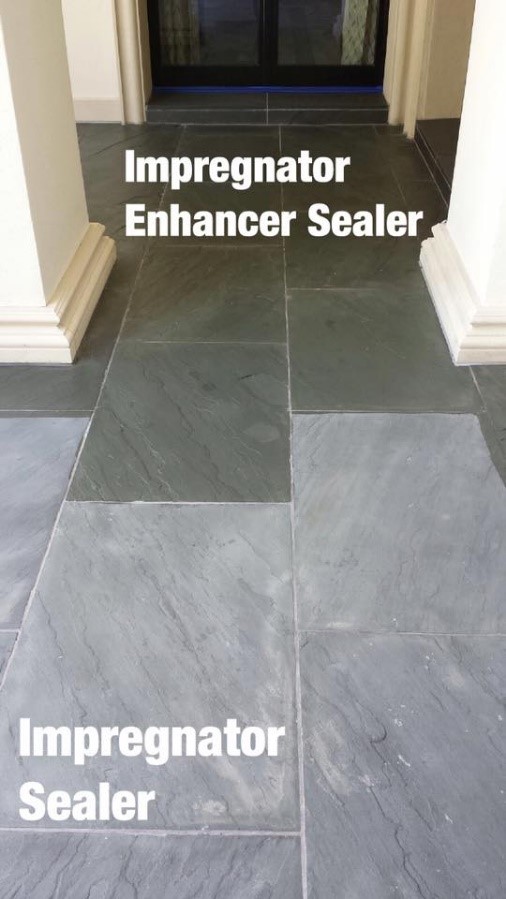
Almost all sealers these days are penetrating. This means the sealer will penetrate down and fill the pores making other liquids, like coffee and wine, less likely to stain. If there are no holes for the stain to sink into then the liquid will stay on top waiting for you to soak it up with a rag. Living in Northern California, you might have a large redwood tree dropping pods and when rain comes those pods will bleed. Sealers can definitely help minimize the staining. TIP #3 When applying sealer to outdoor stone make sure the sealer is UV rated. And TIP #4, think about whether you want to enhance you color or leave it natural.
The downside of sealing is resealing. Depending on traffic and use, sealers will eventually wear off so reapplying penetrating sealer may be required every year or two. If you’re looking for a zero maintenance stone that you never have to worry about again then our only suggestion is to build your backyard in the metaverse. All building materials, even ancient stones, require maintenance and care. So do a little research at home. Read all labels carefully. If you’re not sure how to seal your natural stone then call a professional. And if you’d like to bounce stone ideas off someone else then please come down to our showroom and chat with us.


